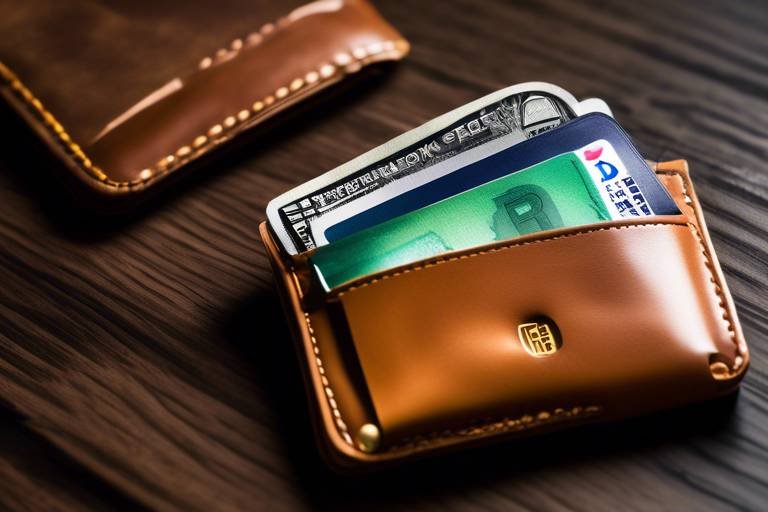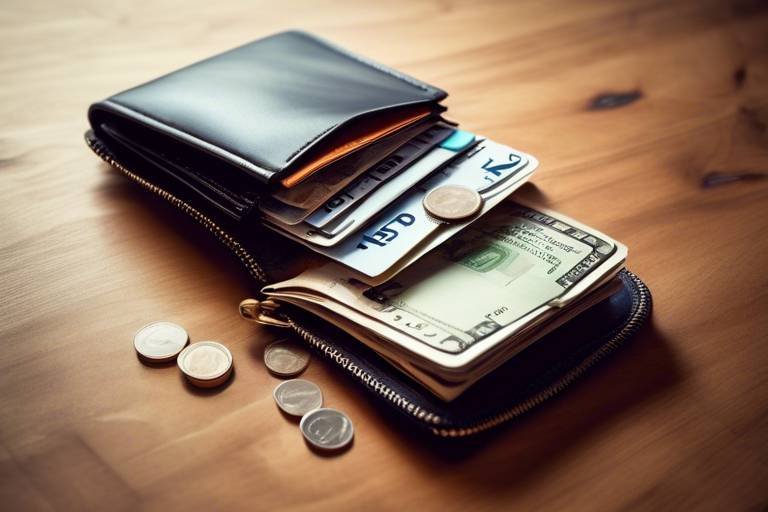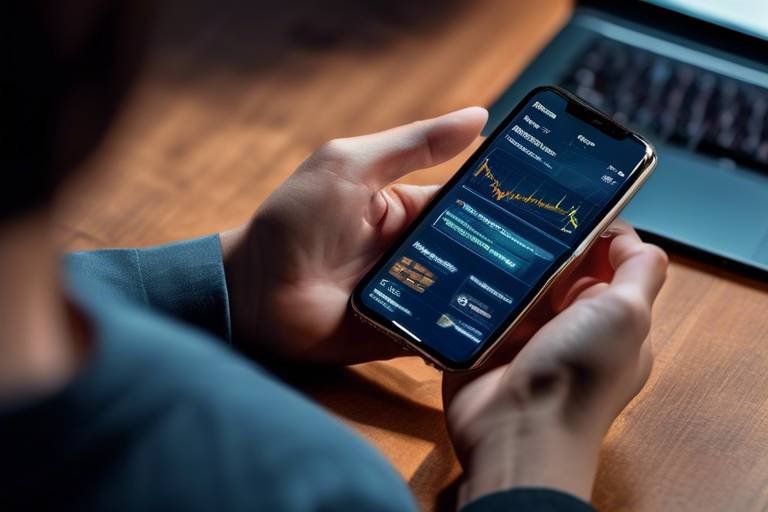How to Choose Between Web Wallets and Mobile Wallets for Trading
In the ever-evolving world of cryptocurrency trading, one of the most crucial decisions you’ll face is whether to use a web wallet or a mobile wallet. Each type has its unique set of features, benefits, and drawbacks that can significantly impact your trading experience. So, how do you make the right choice? This article will guide you through the essential aspects of both web and mobile wallets, helping you understand their functionalities, security measures, and usability. By the end, you’ll be equipped with the knowledge you need to make an informed decision that aligns with your trading needs.
Web wallets are essentially online wallets that allow you to access your cryptocurrency through a web browser. They are incredibly convenient for traders who prefer to manage their assets from any device with internet access. Imagine being able to check your portfolio while sipping coffee at your favorite café or making quick trades during your lunch break. However, this convenience comes with its own set of pros and cons.
On the one hand, web wallets are user-friendly and often come with robust features like trading tools and market analytics. On the other hand, they can be vulnerable to hacking attempts and phishing scams. This makes understanding their functionality and security measures crucial for anyone looking to trade securely.
Mobile wallets, as the name suggests, are designed for smartphones and tablets. They offer a more personalized experience, allowing you to manage your cryptocurrencies right from your pocket. Picture this: you're at a concert, and you want to make a quick trade. With a mobile wallet, you can do that seamlessly. However, while they provide unmatched convenience, they also come with certain limitations, such as dependency on your device's battery and potential security risks if your phone gets lost or stolen.
Let’s delve deeper into the features and benefits of mobile wallets, as well as their limitations in the trading landscape.
When it comes to trading, security should always be a top priority. Web wallets implement various security measures to protect users' assets and data from potential threats. Most reputable web wallets use encryption to safeguard your information, making it nearly impossible for unauthorized users to gain access. Additionally, many web wallets offer multi-factor authentication, which adds an extra layer of security by requiring users to verify their identity through multiple methods.
Encryption is like a lock on your front door; it keeps unwanted guests out. Similarly, multi-factor authentication acts as an additional security guard, ensuring that even if someone does get your password, they still can’t access your account without the second form of verification. This combination of technologies provides peace of mind for traders who want to secure their investments.
Despite their advantages, web wallets come with inherent risks. For instance, if a hacker gains access to the wallet provider's server, they could potentially compromise all user accounts. To mitigate these risks, users should consider the following strategies:
- Choose a reputable wallet provider with a solid track record.
- Regularly update your passwords and enable multi-factor authentication.
- Be cautious of phishing attempts and always verify website URLs.
Mobile wallets also prioritize security, often implementing features like biometric authentication, which uses your fingerprint or facial recognition to grant access. This makes it incredibly difficult for anyone else to access your funds. Additionally, many mobile wallets offer backup options, allowing you to recover your assets in case your device is lost or stolen.
The user experience is crucial for traders, and web wallets are designed with this in mind. A well-designed web wallet can enhance trading efficiency, making it easier to navigate through different functionalities. Factors such as interface design, accessibility, and overall ease of use play a significant role in how effectively you can manage your assets.
A clean and intuitive interface can make all the difference in your trading experience. Think of it as a well-organized toolbox: when everything is in its place, you can find what you need quickly and get to work. Web wallets that prioritize user experience often feature customizable dashboards, quick access to trading tools, and intuitive navigation, all of which contribute to a smoother trading process.
Mobile wallets are designed for on-the-go trading, catering to the modern trader's lifestyle. They often come with features like push notifications for market changes, allowing you to act quickly when opportunities arise. However, the usability of these wallets can vary significantly between different apps, so it's essential to choose one that meets your specific needs.
Mobile wallets often include unique features such as QR code scanning for quick transactions, built-in exchanges for instant trading, and even loyalty programs that reward frequent users. These functionalities cater to the needs of active traders, making it easier to manage assets while on the move.
1. Are web wallets safe for trading?
Yes, web wallets can be safe if you choose a reputable provider and implement security measures like strong passwords and multi-factor authentication.
2. Can I use both web and mobile wallets?
Absolutely! Many traders use both types of wallets to take advantage of their unique features and benefits.
3. What should I look for in a mobile wallet?
Look for features like biometric authentication, backup options, and a user-friendly interface to enhance your trading experience.
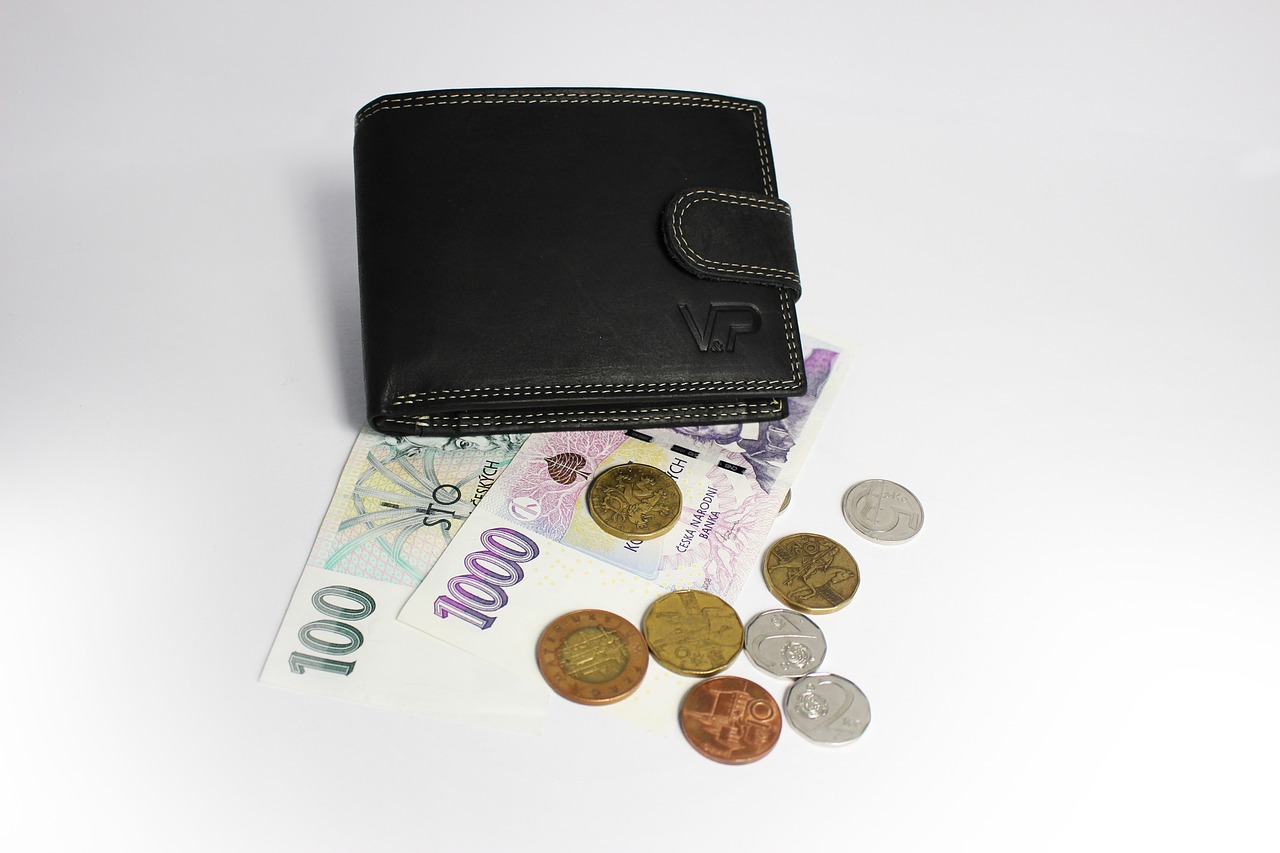
Understanding Web Wallets
Web wallets are an increasingly popular choice among traders, primarily due to their convenience and accessibility. Accessible through any web browser, they allow users to manage their cryptocurrencies from virtually anywhere with an internet connection. This flexibility is particularly appealing for those who are always on the move or prefer not to download additional software. However, while web wallets offer ease of use, they come with their own set of features, benefits, and potential drawbacks that every trader should consider.
One of the most significant advantages of web wallets is their user-friendly interface. Most web wallets are designed to be intuitive, allowing even beginners to navigate them with ease. This means that you can quickly send or receive cryptocurrencies without having to go through a complicated setup process. Furthermore, many web wallets offer integrated features like real-time market data, making it easier for traders to make informed decisions on the fly.
However, it's essential to acknowledge the potential downsides of using web wallets. While they are convenient, they may expose users to certain risks. For instance, since web wallets are hosted online, they can be vulnerable to hacking attempts. Cybercriminals often target these wallets to gain access to users' funds. Additionally, if the service provider faces technical issues or goes offline, users may find themselves unable to access their funds temporarily. Therefore, it’s crucial to choose a reputable provider with a solid track record in security and reliability.
When weighing the pros and cons of web wallets, consider the following factors:
- Convenience: Access your wallet from any device with an internet connection.
- Ease of use: User-friendly interfaces designed for quick transactions.
- Security risks: Vulnerable to hacking and phishing attacks.
- Provider reliability: Dependence on the service provider for access and security.
In summary, web wallets can be an excellent choice for traders seeking convenience and ease of use. However, it’s essential to remain vigilant about security and choose a trustworthy provider. By understanding both the benefits and risks associated with web wallets, you can make a more informed decision that aligns with your trading needs.

Understanding Mobile Wallets
Mobile wallets have revolutionized the way we handle transactions, making it easier than ever to trade on the go. Imagine having a small, digital bank in your pocket, ready to facilitate trades at a moment's notice. These wallets, accessible via smartphones, offer a user-friendly experience that appeals to both novice and seasoned traders alike. With the rise of cryptocurrencies and digital assets, mobile wallets have become an essential tool for anyone looking to engage in trading activities.
One of the standout features of mobile wallets is their convenience. You can check your balance, send or receive funds, and even buy or sell assets with just a few taps on your screen. This level of accessibility is a game-changer for traders who want to react quickly to market changes. Furthermore, mobile wallets often come with built-in functionalities that enhance the trading experience. For instance, many wallets allow users to track market trends, set price alerts, and manage multiple assets all within the same app.
However, while mobile wallets offer numerous benefits, they also come with their own set of limitations. For example, the reliance on your smartphone means that if your device is lost or stolen, your wallet could be at risk. Additionally, the security measures in place on mobile wallets can vary significantly between different applications, which is why it's crucial to choose a reputable provider. Some mobile wallets may not offer the same level of encryption or multi-factor authentication as their web-based counterparts, leaving users vulnerable to potential threats.
To give you a clearer picture, here’s a comparison of some key features of mobile wallets:
| Feature | Mobile Wallets | Web Wallets |
|---|---|---|
| Accessibility | Available on smartphones, ideal for on-the-go trading | Accessible via web browsers, requires internet connection |
| User Experience | User-friendly interfaces, often with intuitive designs | Varies by provider, may be less mobile-friendly |
| Security | Varies by app; some offer strong encryption and biometric access | Generally offers robust security features like multi-factor authentication |
| Functionality | Often includes additional features like price alerts and market tracking | Primarily focused on trading and asset management |
In summary, mobile wallets serve as a powerful tool for traders, providing the flexibility to manage assets anytime, anywhere. However, it's essential to weigh the advantages against the potential risks. By selecting a reputable mobile wallet and implementing best security practices, you can enjoy the benefits of mobile trading while minimizing vulnerabilities.
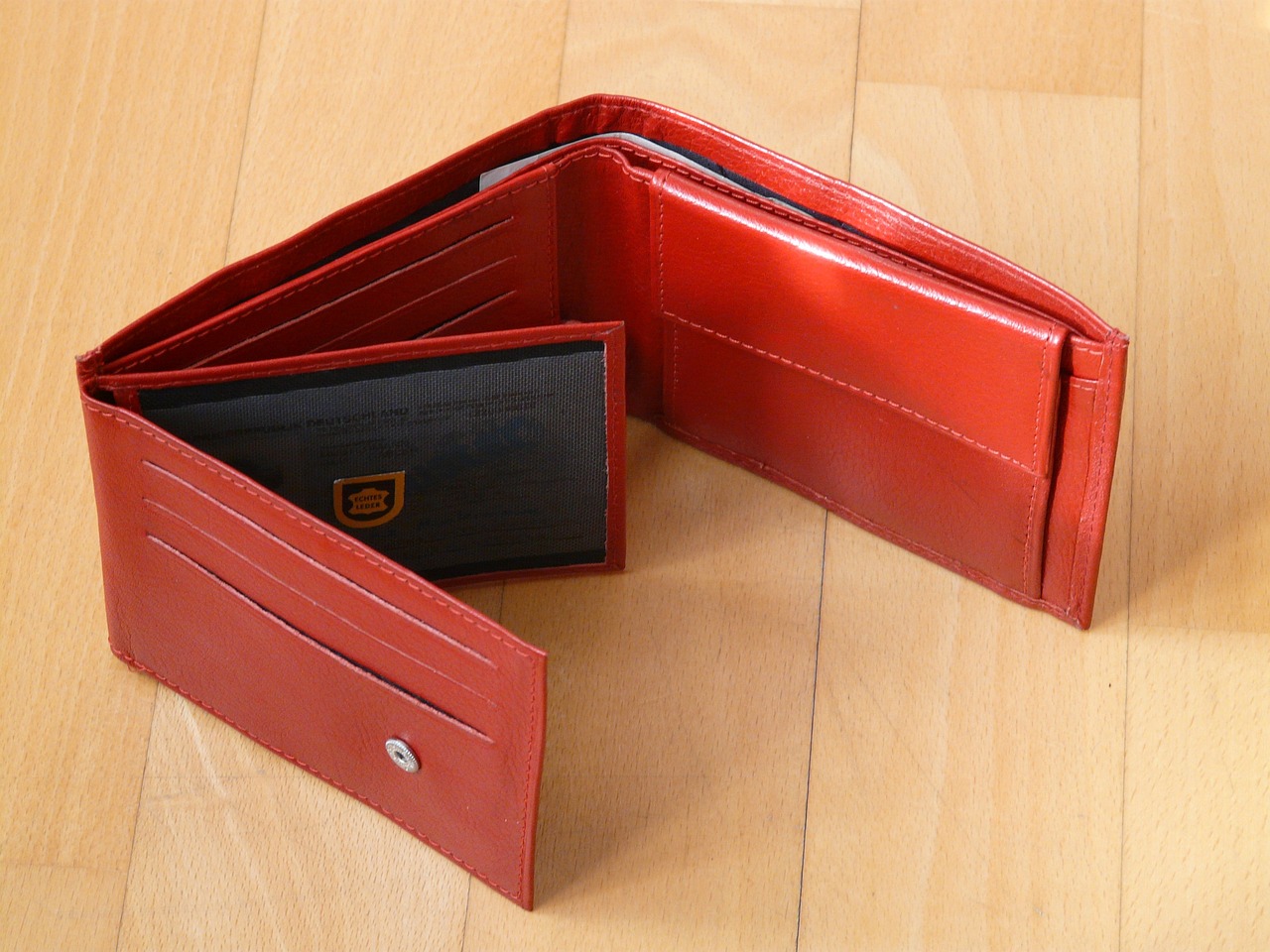
Security Features of Web Wallets
When it comes to trading, security is not just an option; it's a necessity. Web wallets, which allow users to access their funds through a browser, must implement robust security measures to protect against potential threats. One of the primary features of web wallets is the use of encryption. This technology scrambles the data transmitted between the user and the wallet service, making it nearly impossible for hackers to intercept and read sensitive information. Think of encryption as a secret language that only you and your wallet can understand, keeping your financial details safe from prying eyes.
In addition to encryption, most web wallets employ multi-factor authentication (MFA). This means that even if someone manages to get hold of your password, they won't be able to access your wallet without a second form of verification. This could be a text message with a verification code, a biometric scan, or an authentication app. MFA acts like a double lock on your front door; it keeps unwanted visitors out even if they have a key.
However, while web wallets offer these impressive security features, they are not without their risks. One significant concern is that web wallets are often hosted on centralized servers. This centralization can create a single point of failure, making them attractive targets for cybercriminals. If a hacker successfully breaches the server, they could potentially access many users' funds at once. To mitigate this risk, users should choose reputable web wallets that have a strong track record of security and regularly update their security protocols.
Furthermore, it's essential for users to take personal responsibility for their security. This can include using strong, unique passwords for their wallet accounts, enabling two-factor authentication, and being cautious about phishing attempts. Always remember that if something seems too good to be true, it probably is. By staying vigilant and informed, traders can significantly reduce their risk while using web wallets.
In summary, while web wallets come with advanced security features such as encryption and multi-factor authentication, users must remain aware of the inherent risks associated with centralized services. By combining robust wallet security with personal vigilance, traders can enjoy a safer trading experience.

Encryption and Authentication
When it comes to securing your digital assets, encryption and authentication are the twin pillars that uphold the integrity of web wallets. Think of encryption as the lock on your front door, ensuring that only those with the key can access what's inside. In the world of web wallets, encryption transforms your sensitive data into an unreadable format, making it nearly impossible for unauthorized users to decipher. This means that even if a hacker intercepts your data, they’ll be met with a jumbled mess that is utterly useless.
But encryption alone isn’t enough. That’s where authentication comes in. This is like having a security guard at your door who checks your ID before letting you in. Web wallets typically utilize multi-factor authentication (MFA), which requires you to verify your identity through multiple methods before granting access. For example, you might need to enter a password and then confirm your identity via a text message or an authentication app. This multi-layered approach significantly enhances security, making it much harder for intruders to gain access to your wallet.
To give you a clearer picture, let's break down some common encryption and authentication methods used in web wallets:
| Method | Description |
|---|---|
| SSL/TLS Encryption | Secures data in transit between your browser and the wallet server, preventing eavesdropping. |
| End-to-End Encryption | Data is encrypted on your device and only decrypted on the recipient's device, ensuring privacy. |
| Two-Factor Authentication (2FA) | Requires two forms of verification, such as a password and a code sent to your phone. |
| Biometric Authentication | Uses fingerprints or facial recognition for quick and secure access. |
Ultimately, the combination of robust encryption and stringent authentication measures creates a formidable barrier against potential threats. However, it’s essential for users to remain vigilant and adopt best practices, such as regularly updating passwords and enabling all available security features. Remember, even the best security measures can be compromised if users are not proactive in safeguarding their credentials.
In conclusion, while web wallets offer convenient access to your trading assets, the security provided by encryption and authentication is what truly empowers users to trade with confidence. It’s like having a high-tech security system in your home; it doesn’t just protect your belongings—it gives you peace of mind.
- What is the difference between encryption and authentication?
Encryption secures data by converting it into a coded format, while authentication verifies the identity of users accessing that data. - Is two-factor authentication necessary for web wallets?
Yes, it adds an extra layer of security that significantly reduces the risk of unauthorized access. - Can I use biometric authentication on all web wallets?
Not all web wallets support biometric authentication, so it’s important to check the features of your specific wallet.

Risks Associated with Web Wallets
When it comes to trading, using web wallets can be incredibly convenient, but it's essential to be aware of the risks that accompany this convenience. Just like a shiny new car comes with its own set of maintenance challenges, web wallets, despite their user-friendly nature, can expose you to various vulnerabilities. One of the primary concerns is the potential for hacking. Since web wallets are hosted online, they are often targeted by cybercriminals who seek to exploit weaknesses in security systems. Imagine leaving your front door wide open; it’s an invitation for trouble!
Another risk to consider is the dependency on third-party services. When you use a web wallet, you're essentially entrusting your assets to a service provider. If that provider experiences a security breach or goes offline for any reason, your funds could be at risk. This is akin to putting your money in a bank that has a poor track record—would you feel safe?
Moreover, web wallets can be susceptible to phishing attacks. Cybercriminals often create fake websites that mimic legitimate wallet services to trick users into providing their login credentials. If you're not vigilant, you could easily fall into this trap. Always double-check URLs and ensure you're on the correct site before entering sensitive information. It's like checking the ingredients before eating a dish—you want to know what you're consuming!
To further illustrate the risks, here’s a quick summary of the key vulnerabilities associated with web wallets:
- Hacking: Online wallets can be targets for cyber attacks.
- Third-party dependency: Relying on external providers can compromise your assets.
- Phishing attacks: Users may unknowingly provide personal information to fraudulent sites.
Lastly, while web wallets offer convenience, they often lack the robust security features that other wallet types might provide. For instance, many mobile wallets incorporate advanced security measures like biometric authentication, which are not always available in web wallets. This can leave users feeling exposed, especially when dealing with significant amounts of cryptocurrency. In conclusion, while web wallets are a great option for quick and easy access to your funds, it's crucial to weigh these risks carefully and take proactive measures to safeguard your investments.
1. Are web wallets safe for trading?
While web wallets offer convenience, they can be vulnerable to hacking and phishing attacks. It's important to choose reputable providers and take security precautions.
2. What can I do to protect my web wallet?
Enable two-factor authentication, use strong passwords, and be cautious of phishing attempts by verifying URLs before entering sensitive information.
3. Are there better alternatives to web wallets?
Yes, hardware wallets and mobile wallets often provide enhanced security features that can better protect your assets.
4. Can I recover my funds if my web wallet is hacked?
It depends on the wallet provider's policies. However, if your credentials are compromised, it’s crucial to act quickly to minimize potential losses.

Security Features of Mobile Wallets
When it comes to trading, the security of your assets is non-negotiable. Mobile wallets have stepped up to the plate, offering a plethora of security features designed to keep your funds safe and sound. Imagine your mobile wallet as a high-tech vault that not only protects your valuables but also allows you to access them quickly and conveniently. One of the standout features of mobile wallets is their use of biometric authentication. This means that instead of fumbling with passwords, you can simply use your fingerprint or facial recognition to access your wallet. It’s like having a personal bodyguard that only lets you in!
Another critical security feature is encryption. Mobile wallets employ advanced encryption techniques to ensure that your data is scrambled and unreadable to anyone who might try to intercept it. Think of it as sending a secret message that only you and your wallet can decode. This layer of security is crucial, especially when you consider that mobile devices are often targets for cybercriminals. Additionally, many mobile wallets offer two-factor authentication (2FA), which adds an extra layer of protection. With 2FA, even if someone manages to get hold of your password, they would still need a second form of identification—like a code sent to your phone—to access your account.
However, it’s essential to recognize that no system is entirely foolproof. Just as you wouldn’t leave your front door wide open, you should also take precautions with your mobile wallet. For instance, regularly updating your wallet app and your smartphone's operating system can help patch any security vulnerabilities. Moreover, using a reputable wallet provider that prioritizes security can significantly reduce risks. It's like choosing a bank with a solid reputation; you want to ensure your money is in trustworthy hands.
In summary, mobile wallets come equipped with robust security features that make them a reliable choice for traders. The combination of biometric authentication, encryption, and two-factor authentication creates a formidable barrier against potential threats. However, it’s equally important for users to remain vigilant and proactive in protecting their assets. After all, in the world of trading, a little caution can go a long way!
- What is a mobile wallet? A mobile wallet is a digital wallet that allows you to store and manage your cryptocurrencies or digital assets on your smartphone.
- Are mobile wallets safe to use? Yes, mobile wallets are generally safe, especially those that implement strong security measures like encryption and biometric authentication.
- Can I lose my funds in a mobile wallet? Yes, if your phone is lost or compromised, there is a risk of losing access to your funds. Always use backup measures and secure your device.
- How do I choose a secure mobile wallet? Look for wallets with strong security features, good user reviews, and a reputable track record. Always do your research before choosing a wallet.

Usability of Web Wallets
When it comes to trading, the can make or break your experience. Imagine trying to navigate a complicated maze when all you want is to find the exit; that's how trading can feel if your wallet isn't user-friendly. Web wallets are accessible through any browser, which means you can trade from virtually anywhere, as long as you have an internet connection. This convenience is a double-edged sword, as it brings both ease of access and certain usability challenges.
One of the major advantages of web wallets is their intuitive interface. Most web wallets are designed with the user in mind, featuring clean layouts and easy navigation. Users can typically expect to find essential functions like sending and receiving funds, viewing transaction history, and managing account settings right at their fingertips. However, some wallets may overwhelm users with too many features or a cluttered interface, making it crucial to choose a wallet that balances functionality with simplicity.
Accessibility also plays a vital role in usability. With web wallets, you can access your funds from any device with a web browser, whether it's a desktop, laptop, or tablet. This flexibility is particularly useful for traders who might switch devices frequently. However, it’s essential to remember that this accessibility comes with its own set of risks, such as potential phishing attacks or browser vulnerabilities. Therefore, while the usability is a significant advantage, users must remain vigilant.
Another important aspect of usability is the speed of transactions. The last thing you want when trading is to experience delays. Most web wallets are optimized for quick transactions, allowing users to send and receive funds almost instantaneously. However, the speed can vary depending on the wallet's infrastructure and the current network congestion. Therefore, it’s advisable to look for wallets that have a reputation for reliability and speed.
In addition to these factors, user support is a critical component of usability. A good web wallet should offer robust customer support options, such as live chat, email assistance, or comprehensive FAQs. If you encounter issues while trading, having quick access to help can significantly enhance your overall experience. Don't hesitate to check reviews or forums to gauge the responsiveness of a wallet's support team before making a decision.
To summarize, the usability of web wallets can be evaluated based on several key factors:
- Interface Design: A clean and intuitive layout ensures that users can navigate the wallet easily.
- Accessibility: The ability to trade from any device is a significant advantage, but it requires careful attention to security.
- Transaction Speed: Quick transactions are essential for effective trading, especially in a fast-paced market.
- User Support: Reliable customer service can make a world of difference when issues arise.
In conclusion, while web wallets offer a plethora of advantages in terms of usability, it’s essential to consider the associated risks and choose wisely. A well-chosen web wallet can enhance your trading experience, making it more efficient and enjoyable. As you evaluate your options, keep these factors in mind to ensure you select a wallet that meets your trading needs effectively.
1. What are web wallets used for?
Web wallets are primarily used for storing, sending, and receiving cryptocurrencies. They provide easy access to your funds through a web browser, making trading convenient.
2. Are web wallets safe?
While web wallets offer convenience, they can be vulnerable to hacks and phishing attacks. It's essential to choose a reputable wallet and implement strong security measures.
3. Can I access my web wallet from multiple devices?
Yes, web wallets can be accessed from any device with a web browser, allowing for flexibility in trading.
4. How do I choose the best web wallet?
Consider factors like interface design, transaction speed, security features, and customer support when selecting a web wallet for trading.
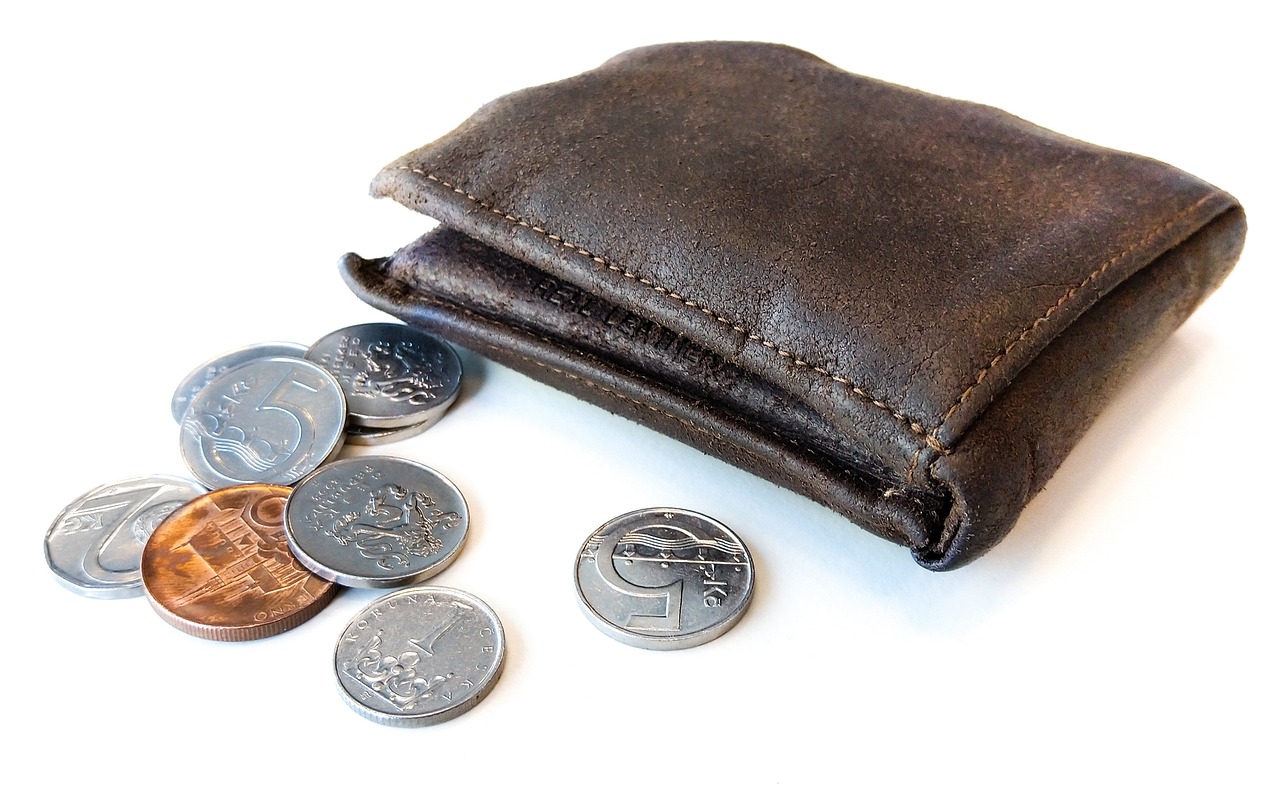
Interface Design and User Experience
When it comes to trading, the interface design of web wallets can make or break your experience. Imagine trying to navigate a complex maze with no clear path; that's how frustrating a poorly designed interface can feel. A well-structured web wallet interface not only enhances usability but also boosts your trading efficiency. Traders need quick access to their assets, transaction history, and market data, and the layout should facilitate that with minimal clicks.
One of the key aspects of a great interface is intuitive navigation. Users should be able to find what they need without a second thought. This means clear labels, logical categorization, and a consistent layout across all pages. For instance, if you’re looking to make a transaction, the option should be prominently displayed, ideally within a few clicks. A cluttered interface can lead to confusion and delays, which could cost you precious time in the fast-paced trading environment.
Another critical factor is visual appeal. Aesthetics matter! A wallet that looks modern and clean can make trading feel more enjoyable. Think about it: would you rather use a web wallet that looks like it’s stuck in the 90s or one that embraces a sleek, contemporary design? A visually appealing interface not only attracts users but also instills a sense of trust and reliability. Colors, fonts, and graphics should be chosen wisely to create a harmonious experience, guiding users through the wallet seamlessly.
Moreover, responsiveness is essential. With many traders accessing their wallets from various devices, it’s crucial that web wallets are optimized for different screen sizes. A responsive design ensures that whether you’re on a desktop, tablet, or smartphone, your experience remains consistent and user-friendly. Imagine trying to trade on a site that doesn’t adapt to your device; it’s not just inconvenient, it can also lead to missed opportunities.
Finally, let’s talk about user feedback. A good web wallet should provide mechanisms for traders to give feedback on their experience. This could be through surveys, ratings, or direct support channels. By listening to users, companies can continuously improve their interfaces, ensuring they meet the ever-evolving needs of traders. After all, in a world where user experience is king, staying attuned to feedback is crucial for success.
In summary, the interface design and user experience of web wallets play a pivotal role in the trading process. An intuitive, visually appealing, and responsive design can significantly enhance your trading efficiency and satisfaction. As you explore different web wallets, pay close attention to these aspects—they could very well be the difference between a seamless trading experience and a frustrating one.
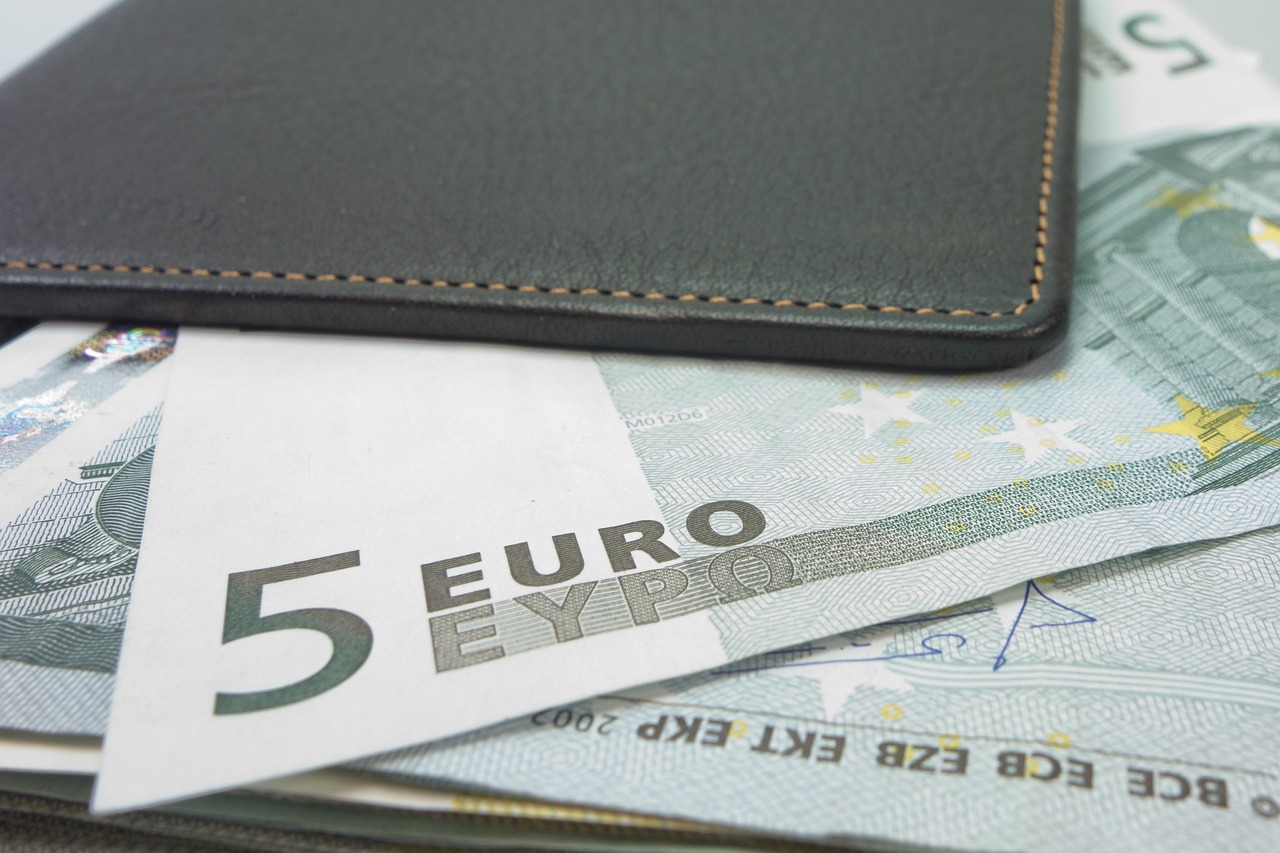
Usability of Mobile Wallets
When it comes to trading on the go, mobile wallets shine like a beacon of convenience. Imagine being able to manage your assets right from your pocket, whether you're at a coffee shop, commuting, or just lounging at home. This accessibility is a game-changer for traders who need to stay connected and responsive to market fluctuations. Mobile wallets are specifically designed for smartphones, offering a user-friendly experience that prioritizes speed and efficiency. But what exactly makes them so appealing?
One of the standout features of mobile wallets is their intuitive interface. Users can navigate through their options with ease, making transactions feel seamless. Whether you're sending funds to a friend or making a quick trade, a well-designed app can make all the difference. Many mobile wallets also incorporate biometric authentication, such as fingerprint scanning or facial recognition, which adds an extra layer of security while enhancing usability. This means you can quickly access your funds without the hassle of remembering complex passwords.
Moreover, mobile wallets often come equipped with features tailored specifically for traders. For instance, some apps provide real-time market data, allowing users to make informed decisions on the fly. Imagine being able to check the latest market trends while you're out and about! This functionality is crucial for active traders who need to act quickly to seize opportunities. Additionally, many mobile wallets support push notifications to alert you about price changes or significant market events, ensuring you never miss a beat.
However, while mobile wallets offer numerous advantages, they are not without their limitations. For example, the performance of these apps can be heavily reliant on your smartphone's capabilities. If your device is outdated or running low on storage, you might experience lag or crashes during critical trading moments. Furthermore, mobile wallets typically require a stable internet connection, which can be a challenge if you're in an area with poor service.
To summarize, the usability of mobile wallets is defined by their:
- Accessibility: Trade anytime and anywhere.
- Intuitive Design: Easy navigation and user-friendly interfaces.
- Real-time Features: Instant updates and notifications to keep you informed.
In conclusion, mobile wallets provide a robust platform for traders who value convenience and speed. They offer a unique blend of usability features that cater to the fast-paced nature of trading. However, it's essential to ensure that your device is up to the task and that you have a reliable internet connection to fully leverage the benefits of mobile wallets.
- What is a mobile wallet? A mobile wallet is an application on your smartphone that allows you to store and manage your cryptocurrencies and other digital assets.
- Are mobile wallets safe for trading? Yes, mobile wallets can be safe if they use strong security measures like encryption and biometric authentication. However, users should remain vigilant and follow best practices.
- Can I use a mobile wallet offline? Most mobile wallets require an internet connection to perform transactions, but some features may be available offline, such as viewing your balance.
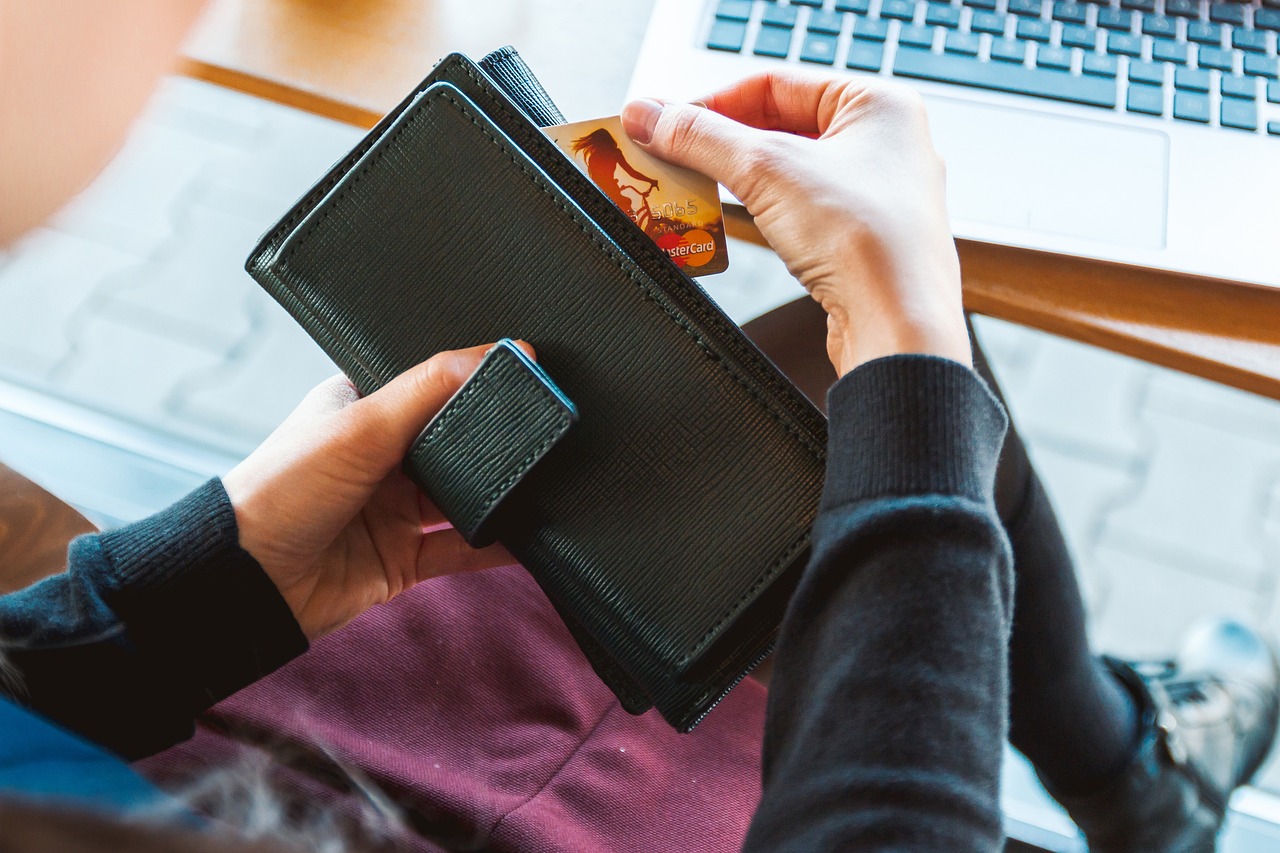
Mobile App Features
When it comes to trading, having a mobile wallet at your fingertips can be a game-changer. Mobile wallets are designed with the user in mind, offering a plethora of features that cater specifically to the needs of active traders. One of the most significant advantages of mobile wallets is their convenience. Imagine being able to manage your trades while you're on the go, whether you're commuting, waiting in line, or even lounging at a café. This accessibility is a major selling point for many traders.
In addition to convenience, mobile wallets typically come with a range of features that enhance the trading experience. For instance, many mobile wallets offer real-time market data and price alerts, allowing traders to make informed decisions quickly. You can set up notifications for price changes, ensuring that you never miss an opportunity, even if you're not actively monitoring the market. These features can be crucial for traders who rely on timely information to capitalize on market fluctuations.
Moreover, mobile wallets often include built-in security features such as biometric authentication (like fingerprint or facial recognition) and automatic logout options. These features not only provide a layer of security but also make the user experience smoother and more efficient. After all, who wants to type in a password every time they want to check their balance or make a quick trade? With biometric options, you can access your wallet in seconds, which is essential when every second counts in trading.
Another noteworthy feature of mobile wallets is their ability to integrate with various trading platforms. This means you can execute trades directly from your wallet without having to switch between apps. This seamless integration can save you time and effort, allowing you to focus on what really matters—making profitable trades. Additionally, many mobile wallets offer multi-currency support, enabling you to manage different cryptocurrencies all in one place. This is particularly beneficial for traders who diversify their portfolios across multiple assets.
Furthermore, mobile wallets often come equipped with tools for tracking your portfolio performance. You can view detailed analytics, including your trading history, gains, and losses, all from your smartphone. This feature allows you to analyze your trading strategies on the go and make adjustments as needed. With the right mobile wallet, you can turn your smartphone into a powerful trading tool, giving you the flexibility to trade anytime, anywhere.
In summary, mobile wallets are not just about convenience; they are packed with features that cater to the dynamic needs of traders. From real-time market alerts to seamless integrations with trading platforms, these wallets provide a comprehensive solution for managing your trades efficiently. As you consider your options, think about how these features align with your trading style and needs. The right mobile wallet can make a significant difference in your trading experience.
- What is the main advantage of using a mobile wallet for trading? The primary advantage is convenience, allowing you to trade on the go with features like real-time alerts and biometric security.
- Are mobile wallets secure? Yes, most mobile wallets implement strong security measures, including biometric authentication and encryption, to protect your assets.
- Can I trade multiple cryptocurrencies with a mobile wallet? Absolutely! Many mobile wallets support multiple currencies, making it easy to manage a diverse portfolio.
- How do mobile wallets integrate with trading platforms? Many mobile wallets offer direct integration with trading platforms, allowing you to execute trades without switching apps.
Frequently Asked Questions
- What is the main difference between web wallets and mobile wallets?
Web wallets are accessed through browsers and are generally more convenient for trading on multiple devices, while mobile wallets are applications designed specifically for smartphones, offering a user-friendly experience for traders on the go.
- Are web wallets secure for trading?
Web wallets implement various security measures like encryption and multi-factor authentication to protect users' assets. However, they are still susceptible to online threats, so it's essential to choose a reputable provider and follow best security practices.
- What security features should I look for in a mobile wallet?
When choosing a mobile wallet, look for features like biometric authentication, encryption, and backup options. These help ensure your funds are safe while also providing a seamless trading experience.
- Can I use both web and mobile wallets for trading?
Absolutely! Many traders use both types of wallets to take advantage of their unique benefits. For instance, you might use a web wallet for larger transactions and a mobile wallet for quick trades while on the move.
- What are the risks associated with using web wallets?
Web wallets can be vulnerable to phishing attacks, hacking, and other online threats. To mitigate these risks, always use strong, unique passwords, enable two-factor authentication, and avoid accessing your wallet from public networks.
- Are mobile wallets easier to use than web wallets?
Many users find mobile wallets easier to use due to their intuitive interfaces and streamlined features designed for quick transactions. However, usability can vary between different wallet apps, so it's essential to explore options and find one that suits your trading style.
- Which wallet type is better for beginners?
For beginners, mobile wallets may be more user-friendly due to their straightforward design and ease of access. However, web wallets can also be a good choice if you prefer trading on a larger screen and need to manage multiple accounts.
- How can I ensure the safety of my funds in a web wallet?
To keep your funds safe in a web wallet, use a strong password, enable two-factor authentication, regularly update your security settings, and avoid clicking on suspicious links or emails that may compromise your wallet.



